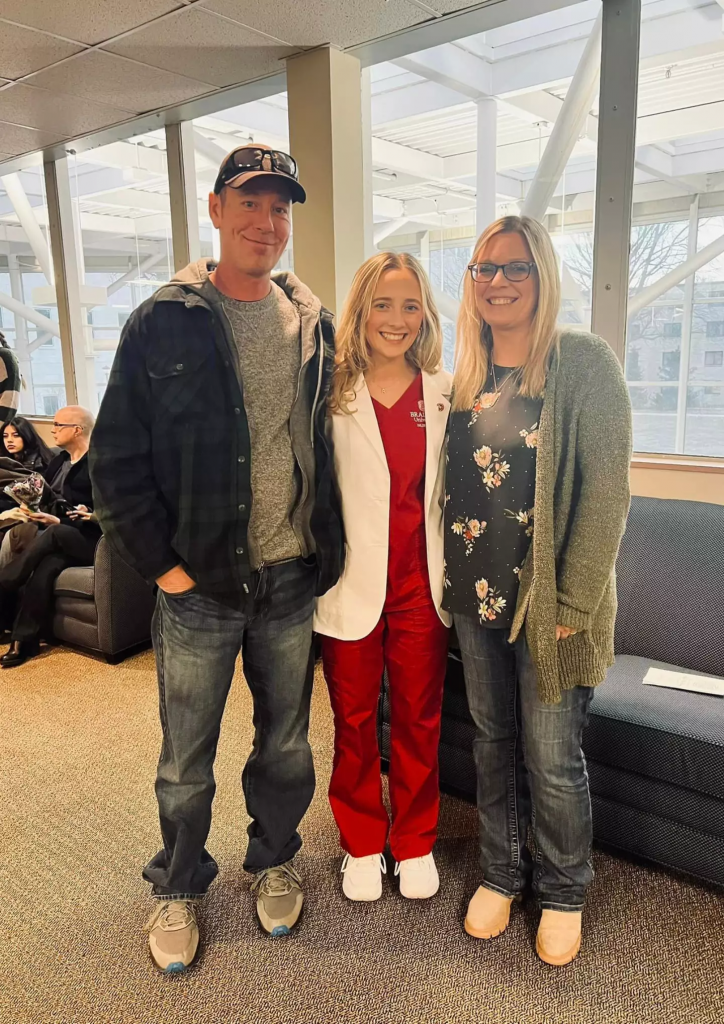Riley Horner’s life took a dramatic turn when a seemingly ordinary day in 2019 ended in an accident that would alter her world. The then-16-year-old was enjoying a regular event at her school in Illinois when she was struck in the head by a crowd-surfer. What seemed like just a fun day ended with her being rushed to the hospital, diagnosed with what doctors initially called a concussion. However, Riley’s ordeal was just beginning, as her symptoms became far more complex and severe than what was initially expected.
Following the injury, Riley’s brain began to function in an unusual and deeply troubling way — her memory would reset every two hours. This rare and perplexing issue left her unable to retain any new memories beyond a short window. In her mind, she woke up every day thinking it was still June 11, 2019, the day before the accident happened, essentially losing touch with everything that occurred after that moment. This condition, often referred to as anterograde amnesia, disrupted every part of her life, causing a sense of constant disorientation. For months, she had to rely on notes, photos, and her family to remind her of what had happened in her life.

At the outset, Riley’s struggle was compounded by seizures that would occur frequently, adding another layer of difficulty to her already fragile condition. The seizures were an alarming sign that her brain was still dealing with the aftershocks of the traumatic blow. What made her case more frustrating was that doctors couldn’t fully explain why her memory loss persisted for so long, despite the fact that she hadn’t sustained a skull fracture or bleeding in the brain. This mystery deepened the challenges her family faced in finding an appropriate treatment plan.
In the early months of her recovery, Riley’s family faced the uphill task of managing her constant memory resets. Each morning, she would wake up confused, not understanding why her memory felt incomplete. To help her navigate daily life, she began writing down events on sticky notes and using her phone to document reminders, appointments, and even simple facts about her day-to-day experiences. Her phone became her lifeline, allowing her to piece together fragments of what her brain refused to hold on to.

While there was no overnight solution for Riley’s condition, she slowly began a journey toward reclaiming her memory. It took time, patience, and extensive therapy to help her brain start retaining new memories. Riley underwent cognitive therapy and medical treatment to address the damage caused by her brain injury, focusing on relearning how to process new information. Her progress was slow but steady, and over time, her brain started to form memories beyond the two-hour window.

With the support of her doctors, therapists, and family, Riley gradually began to rebuild a sense of normalcy. Although her memory challenges remained, she started to see improvements, allowing her to move forward with her life. At one point, she even decided to channel her experience into something positive by pursuing a career in nursing. Motivated by her own journey through illness and recovery, she set her sights on helping others who might be experiencing health challenges of their own.
Though her condition is not entirely behind her, Riley’s improvement has been nothing short of remarkable. The daily resets that once ruled her life have subsided, and her family continues to stand by her side as she navigates ongoing treatments and therapy. Riley’s story is a testament to the resilience of the human spirit, and her determination to reclaim her life, memory by memory, remains an inspiring journey for many others facing similar struggles.
